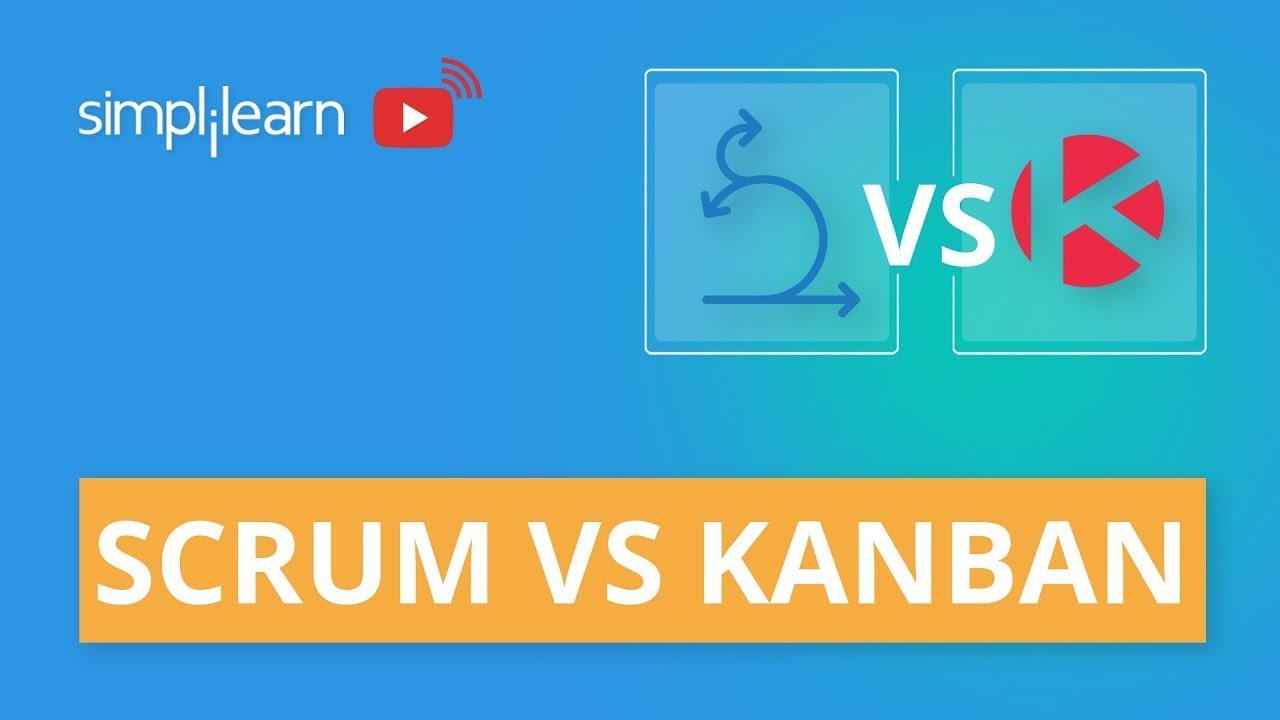Agile Project Management Tutorial | What Is Agile Project Management? | Simplilearn
Summary
TLDRThis session delves into Agile Project Management, a flexible approach that breaks projects into sprints for iterative development. It covers the basics, principles, and steps of Agile, highlighting its benefits like high product quality, customer satisfaction, and reduced risk. Popular frameworks like Kanban, Scrum, and Lean are discussed, along with the adoption of Agile by major companies like IBM and Microsoft, emphasizing Agile's role in fostering innovation and efficiency in project execution.
Takeaways
- 😀 Agile project management is a flexible approach that breaks a project into multiple sprints, delivering mini-projects or sections of the project throughout the process.
- 📈 The Agile development cycle involves several small cycles, with a product backlog for new features and a sprint backlog for tasks to be completed in each sprint, leading to frequent product releases and reduced risk.
- 💡 High product quality, customer satisfaction, reduced risk, and faster return on investment are key reasons why industries are moving towards Agile project management.
- 📝 There are 10 principles of Agile project management, emphasizing customer satisfaction, rapid delivery, team collaboration, flexibility, and trust, among others.
- 🛠 Steps in Agile project management include project planning, roadmap creation, release planning, sprint planning, daily meetings, and sprint review and retrospective.
- 🔍 Agile frameworks such as Kanban, Scrum, Hybrid, and Lean are used to implement Agile methodologies, each with its unique approach to managing work and optimizing workflow.
- 🔑 Kanban focuses on visualizing and optimizing workflow through a board that represents work items, while Scrum is a framework for complex projects that encourages team collaboration and learning.
- 🔄 The Hybrid framework combines Agile and non-Agile methodologies, using traditional planning with Agile execution and delivery, suitable for handling requirement changes and staged product delivery.
- 🏗️ The Lean framework aims to maximize customer value and eliminate waste by optimizing the flow of products and simplifying information management.
- 🌐 Major companies such as IBM, Cisco, AT&T, Microsoft, Philips, and Samsung have adopted Agile project management, reflecting its widespread industry acceptance.
- 📚 The session concludes with a reminder of the benefits of Agile project management and an invitation to subscribe to the SimplyLearn YouTube channel for more informative content.
Q & A
What is Agile Project Management?
-Agile Project Management is a flexible approach to building a project, characterized by breaking down the project into several stages of sprints and delivering sections of a project or mini projects throughout the process, rather than delivering a final product at the end of the project.
What are the key features of the Agile development cycle?
-The Agile development cycle consists of several small cycles or sprints, each ending with a mini project delivery. It includes a product backlog for new features and changes, a sprint backlog with tasks to be completed, and stages of planning, designing, execution, testing, and deployment.
Why have industries started moving towards Agile Project Management?
-Industries have moved towards Agile Project Management due to reasons such as high product quality, customer satisfaction, reduced risk, and better and faster return on investment.
What are the 10 principles of Agile project management?
-The 10 principles include customer satisfaction, decreasing time between planning and delivery, collaborative work between managers and developers, accommodating stakeholder changes, coordination among team members, monitoring and tracking progress, trust and support towards the team, face-to-face conversations, simplicity in solutions, and the use of scrum tools to simplify complex codes.
What are the six steps in Agile project methodology?
-The six steps are project planning, roadmap creation, release planning, sprint planning, daily meetings, and sprint review and retrospective.
What is the Kanban framework in Agile project management?
-The Kanban framework is a method for implementing Agile software development, where work items are represented on a Kanban board, helping team members visualize and optimize workflow.
What is the Scrum framework and how does it benefit Agile project management?
-The Scrum framework is a popular method for managing complex knowledge work, providing a simple structure for teams to collaborate and learn from their experiences while working on a problem.
What is the Hybrid framework in Agile project management?
-The Hybrid framework combines Agile methodology with non-Agile methodology, using traditional project management for planning and Agile for execution and delivery, allowing for better handling of requirement changes and staged product delivery.
What is the Lean framework and its focus in Agile project management?
-The Lean framework focuses on providing maximum customer value and creating zero waste by optimizing the flow of products through the value stream, eliminating waste, and simplifying information management processes.
Which prominent companies are known to use Agile project management?
-Some of the most prominent companies using Agile project management include IBM, Cisco, AT&T, Microsoft, Philips, and Samsung.
Outlines

此内容仅限付费用户访问。 请升级后访问。
立即升级Mindmap

此内容仅限付费用户访问。 请升级后访问。
立即升级Keywords

此内容仅限付费用户访问。 请升级后访问。
立即升级Highlights

此内容仅限付费用户访问。 请升级后访问。
立即升级Transcripts

此内容仅限付费用户访问。 请升级后访问。
立即升级浏览更多相关视频

Agile vs Waterfall: The 3 Most Impactful Differences

What is Agile Project Management? [Benefits + Pitfalls]

Materi 3 - Metode Pengembangan Sistem Informasi - Analisis dan Desain Sistem

Agile project management methodology explained (with burgers?!)

Scrum vs Kanban | Difference Between Scrum And Kanban | Agile Methodology | Simplilearn

Lecture 14 : Agile Project Planning, Project Charter
5.0 / 5 (0 votes)
